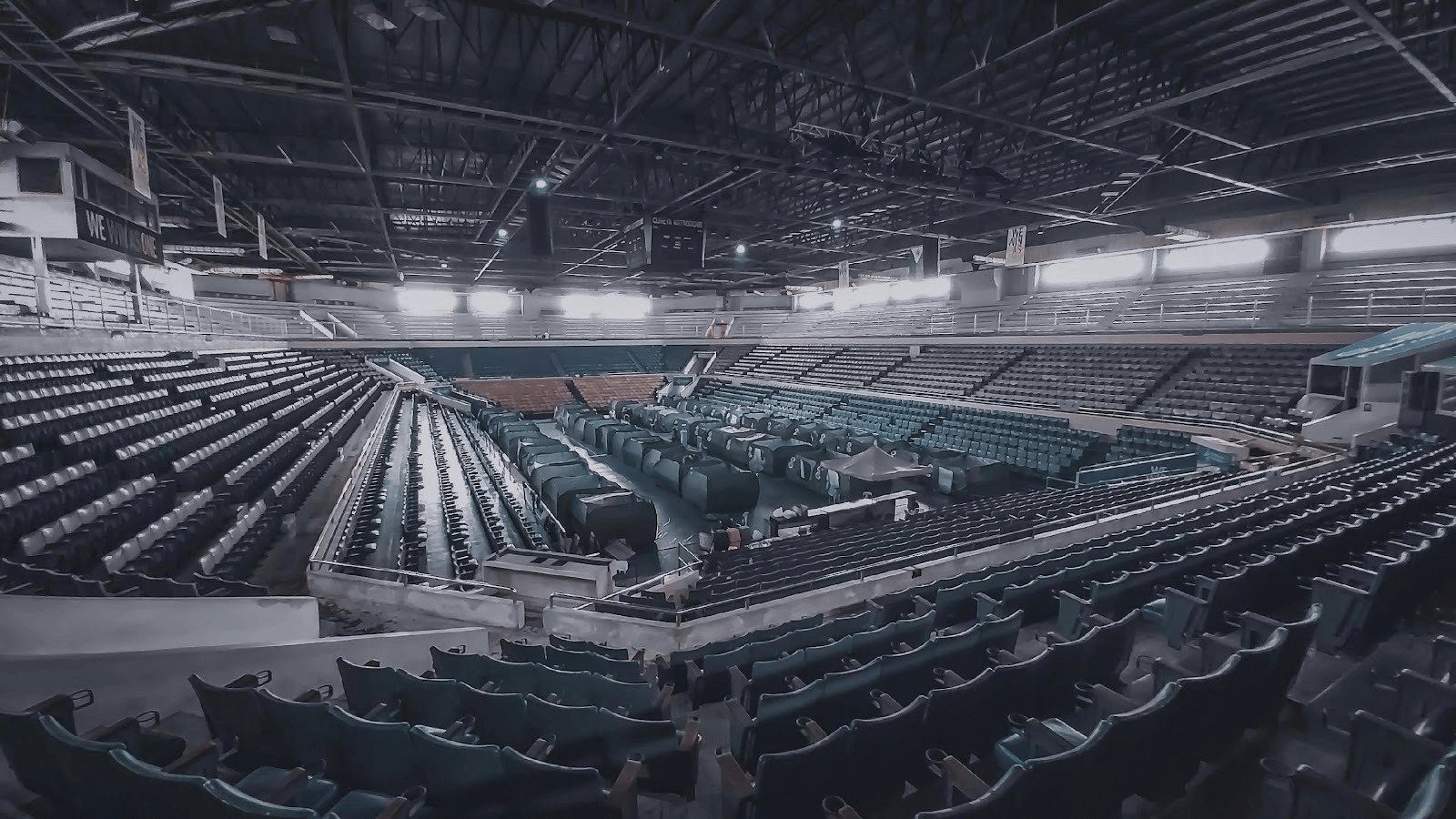
Understanding AV Support: Enhancing Technology Experiences in Events and Workspaces
The demand for seamless audiovisual (AV) experiences has never been higher. Whether it’s a concert, sporting event, boardroom meeting, or hybrid seminar, reliable AV support is the backbone of a successful, engaging, and trouble-free event. From managing sophisticated sound systems to configuring high-resolution displays, AV professionals are the unsung heroes who ensure everything runs smoothly.
The Pro AV market is forecast to grow to $402 billion globally by 2028, fueled by increasing hybrid work environments, advanced learning systems, and experiential marketing trends including AR/VR and AI.
What is AV Support?
AV support involves planning, installing, operating, and maintaining audiovisual systems across environments. These include event venues, educational institutions, corporate offices, houses of worship, airports, transit hubs, museums, and retail environments, to name a few. AV support spans:
- Audio systems (microphones, speakers, mixers)
- Visual technologies (projectors, LED walls, monitors)
- Control systems and network integrations
- Troubleshooting and real-time operations
Learn More
Common AV Equipment and Technologies
A solid AV setup includes a variety of interconnected technologies to create an immersive experience. These systems differ depending on the venue and purpose, but usually fall into three key categories:
Audio Systems
Whether it’s ensuring the CEO’s speech is clear or managing concert acoustics, audio systems include:
- Wired and wireless microphones
- Loudspeakers and line arrays
- Audio mixers and digital signal processors
- Amplifiers and audio interfaces
Visual Displays
Visual elements enhance communication and engagement. Depending on the scale of the event or workspace, these can include:
- Projectors and motorized screens
- LED video walls
- LCD flat panels
- Digital signage solutions
Lighting Setups
Lighting plays a critical role in setting the tone of an event or environment. AV teams often collaborate with lighting designers to:
- Install stage and ambient lighting
- Sync lighting with audio and video cues
- Control brightness, color, and effects via DMZ lighting systems
The Role of AV Support in Events
From boardroom presentations to large-scale industry conferences, AV teams ensure seamless integration of technology that supports productivity and engagement. This includes delivering clear audio for speakers, crisp visuals, and robust platforms for remote attendee participation. With hybrid work environments becoming commonplace, connecting in-person and virtual audiences smoothly is critical.
Types of Events Requiring AV Support
Corporate Meetings and Conferences
AV support enables seamless presentation sharing and remote attendee participation, which is essential for today’s hybrid work culture. These meetings often involve multiple speakers, integrated video conferencing platforms, and high-resolution displays. AV teams ensure microphones, cameras, and display systems work in sync while managing transitions between speakers and in-house and remote contributors.
Concerts and Live Shows
The audience’s sensory experience can make or break an event. AV support teams manage everything from immersive lighting rigs and synchronized visuals to expertly engineered sound systems. Concertgoers, for example, expect flawless audio without distortion.
Educational Seminars and Workshops
Whether it's a university lecture hall, a corporate training session, or a TED Talk, AV professionals ensure visual aids, microphones, cameras, and streaming platforms function flawlessly. They also set up projection systems, interactive whiteboards, and flat panels to enhance content delivery and manage video conferencing tools for remote users.
Core Responsibilities of AV Support Teams
System Setup and Configuration
Technicians are responsible for planning, staging, and physically setting up all necessary equipment before the event begins. Their role includes running cables, mounting projectors and displays, aligning and calibrating video walls, configuring sound, and testing all systems for functionality so the technology performs flawlessly during its performance time.
Real-Time Troubleshooting and Adjustments
Live events often come with unpredictable challenges. Microphones cut out, projectors stop working, or live-streaming drops due to bandwidth issues—all of which can distract the audience. That’s why experienced AV teams are essential. They monitor the system continuously to anticipate potential problems, adjust levels, and adapt quickly to ensure a seamless experience.
AV Support in Workspaces
AV systems are critical to daily operations in office environments, especially as hybrid and remote models become the norm. They are foundational to smooth operations and team productivity. As hybrid and remote work models continue to shape the future, the demand for reliable, intuitive, and integrated AV solutions has skyrocketed. AV support ensures these interactions are seamless and effective.
Importance of AV Support in Office Environments
Enhancing Remote Collaboration
AV teams install and manage video conferencing solutions that allow remote employees to participate fully in meetings. High-quality cameras, professional-grade microphones, and acoustic treatments ensure remote attendees aren’t just present—they’re heard and seen clearly. AV support bridges the gap between physical and digital workspaces, creating an inclusive experience for all participants regardless of location.
Improving In-House Communication
Digital signage displays provide real-time updates in lobbies and conference rooms, while paging systems handle announcements in larger facilities. In meeting rooms, interactive whiteboards and wireless presentation tools replace traditional flip charts, making sharing ideas, editing documents, and capturing input from multiple users easier. AV support ensures all these systems are configured correctly and maintained regularly.
Integration of AV Technologies in Meeting Rooms
Video Conferencing Tools
Professional-grade video conferencing setups are a core element of modern meeting rooms. AV support teams deploy technologies such as PTZ (pan-tilt-zoom) cameras for wide-angle coverage, beamforming microphones to isolate voices from background noise, and DSP (digital signal processing) units to enhance clarity.
Interactive Displays
Smartboards and wireless content-sharing platforms turn meetings into collaboration sessions. Team members can annotate directly on the screen, pull up shared files instantly, and toggle between presenters without fumbling with cables. AV professionals are responsible for integrating these tools into the room’s ecosystem while keeping usability front and center.

Key Skills for AV Support Professionals
AV professionals need to blend technical knowledge with interpersonal strengths. They must understand how to operate and troubleshoot various AV equipment, from microphones and mixers to projection systems and streaming platforms.
Technical Expertise
Understanding AV Systems and Equipment
Modern AV ecosystems involve a complex mix of analog and digital components. Technicians must understand signal flow, impedance matching, latency issues, and integrating various platforms. A solid grasp of electrical safety and AV standards is also key to safe, compliant installations.
Problem-Solving Capabilities
Diagnosing and resolving issues under time pressure is a daily expectation in this role. Live environments leave no room for guesswork. Whether it’s a crackling speaker, a frozen screen, or a misrouted signal, AV techs are expected to identify the problem and resolve it quickly. Critical thinking is essential.
Soft Skills
Communication and Teamwork
AV teams work alongside numerous teams, so clear communication and collaboration are essential. Whether it’s explaining a technical concept in plain language or coordinating with vendors during setup, people skills go a long way, as does quick decision-making and staying calm under pressure.
Adaptability in Diverse Environments
From a quiet classroom to a loud stadium, AV professionals must adjust quickly and professionally to any setting. Every venue is different; what works in a calm boardroom won’t work in a lively arena. AV technicians must adapt quickly to environmental conditions, last-minute changes, and unique user requirements.
Challenges in AV Support
AV support comes with a unique set of challenges that require foresight, quick thinking, and resilience.
Technical Difficulties
Equipment Malfunctions
Even the best technology can fail. Projectors overheat, wireless microphones lose signal, and touchscreens become unresponsive. AV teams must have backups and contingency plans in place to minimize disruptions. That’s why seasoned AV teams always bring spare parts, extra cables, and contingency plans that allow them to swap out gear without missing a beat.
Network Connectivity Issues
With AV systems dependent on the Internet or local networks, AV professionals must often troubleshoot routers, switches, and bandwidth. They usually work with IT teams to adjust connectivity issues or unauthorized device interference.
Managing Last-Minute Changes
Adjusting to Client Requests
Clients often want to switch presentation formats or change room setups minutes before go-time. AV teams must pivot quickly and professionally. It could be as simple as switching a slide deck format or as complex as reconfiguring the AV layout for a concert. The ability to adjust accordingly and solve problems without complaint is a hallmark of top-tier AV support.
Resource Allocation
Managing limited time, technology, and staff to deliver the best service demands strategic planning and creativity. AV leads wear many hats—technician, coordinator, troubleshooter—and must make decisions quickly to keep the show running smoothly.
The Evolving Role of AV Support Teams
The AV industry constantly evolves, shaped by new technology, user expectations, and remote needs. AV professionals are integral to how people connect, communicate, and collaborate. As the AV industry evolves, so must the people who power it.
Training and Skill Development
To stay relevant, AV professionals must continuously learn—certifications like AVIXA’s CTS (Certified Technology Specialist) are highly respected. These credentials validate technical expertise, signal professionalism, and open doors to career growth.
Importance of Staying Current with Trends
Technologies like virtual production, LED Volume Walls, AR/VR, and AI-powered cameras are already reshaping how AV teams operate. AV teams that stay current will deliver future-ready solutions that meet rising expectations, while those who fall behind risk obsolescence.
AV Support: The Takeaway
AV support is the backbone of conferences, concerts, meetings, and engaging experiences. From managing complex equipment setups to solving last-second issues, AV professionals enable technology to perform at its peak.
The value of AV support continues to grow in live event and workplace settings, driven by the global shift to hybrid experiences and smart environments. As digital expectations rise, so does the need for skilled, adaptable AV support teams that can make complex systems easy to work with.
Photo credit: Getty Images/Marco VDM







.jpg?sfvrsn=b87c272_1)
.jpg?sfvrsn=81e7976_1)
